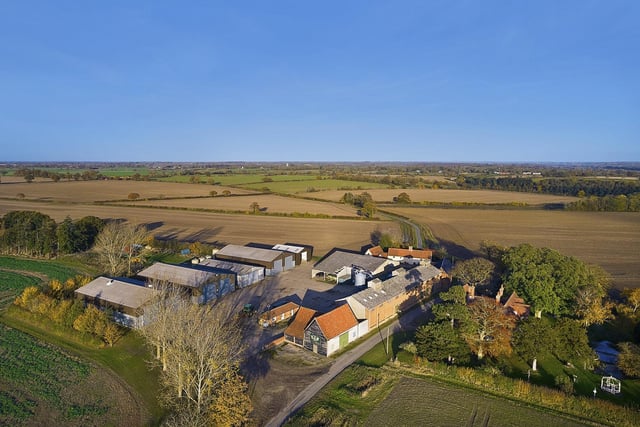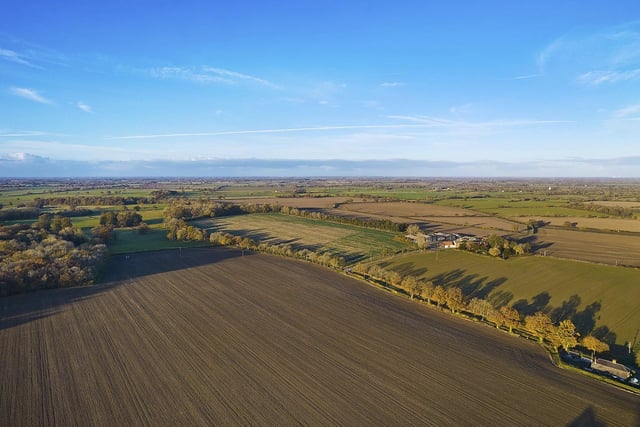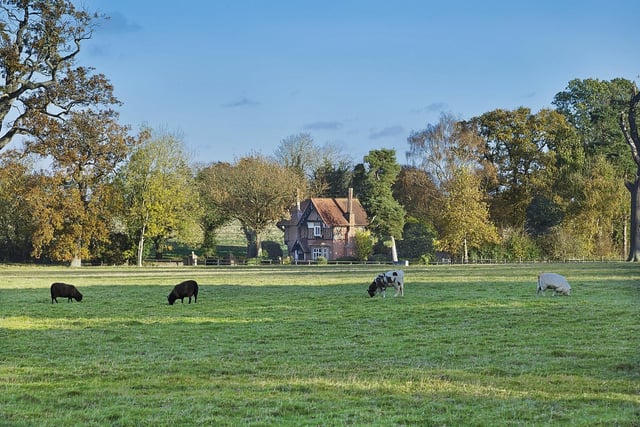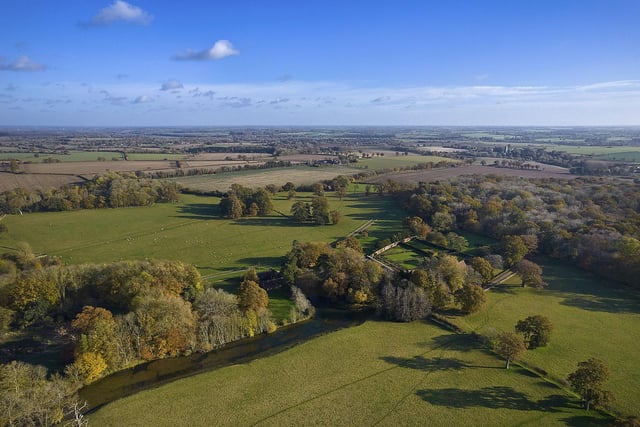Gawdy Hall, near Harleston in Norfolk, dates back to the 16th century and has been in the same family for more than 80 years.
Situated in the heart of the Waveney Valley, it is described by selling agents Savills as a “significant farming estate in a beautifully private location with an extensive residential portfolio”.
The property – which includes 1,510 acres of productive arable land, 117 acres of mature parkland and approximately 79 acres of ancient woodland – is offered for sale as a whole or in seven lots.
The farming operation also includes 4,500 tonnes of modern grain storage, a range of general purpose buildings and a purpose built spray store.
Christopher Miles, from the rural agency team at Savills in Norfolk, said the trustees and family had made a decision to sell following the proposed retirement of David Green, the long standing managing director of Gawdy Hall Estate Co. Ltd.
“Gawdy Hall Estate is a very special place indeed,” he added.
“It has been beautifully managed by the current owners and run as a highly productive and well equipped farming unit, whilst maintaining its estate feel, enhanced by the sweeping entrance drives, ancient woodland and well maintained parkland and grounds.”
The original Gawdy Hall was built in the 1500s on the site of Edward Bacon’s Holbrook Hall by the Gawdy family, influential lawyers who flourished in Norfolk and Suffolk in the 16th and 17th centuries.
The family was in close contact with many prominent figures of the day and Queen Elizabeth I is thought to have stayed in the hall in 1578.
Over the next 400 years the property had various owners – eventually selling at auction in 1938 to Jean Henri Tresfon, the chairman of Norwich based manufacturers Boulton & Paul and grandfather of the current owners.
The cost of repair and rising taxes led to a decision to demolish the original hall in 1939 and the current Gawdy Hall was built as its temporary replacement.
However, Mr Tresfon liked the property so much that he continued to live there rather than re-build the original.
Mr Miles continued: “Today, Gawdy Hall is a first class arable and amenity estate.
“The fields are a good size and shape and the soils are well suited to growing arable and some root crops, with a current rotation of winter wheat, winter and spring barley, oil seed rape, beans and maize.
“The farm has consistently produced high yielding cereal crops with the 10-year average winter wheat yields being 9.7t/ha and oilseed rape averaging 3.54t/ha over the same period.
“In a record year, it achieved an average wheat yield of 11t/ha across the whole farm.
“The diverse environmental credentials – including Gawdy Hall Big Wood which is classified as a Site of Scientific Interest (SSSI) and provides an important role in wildlife conservation and habitat management – also make it a haven for wildlife and perfect for the environmentally conscientious buyer or investor.”
The residential portfolio of 15 houses and cottages, together with commercial buildings, including poultry sheds, provide additional income of £174,376 per annum, with potential to significantly increase.
There is also potential – subject to planning – for the creation of a new principal house on the site of the former Gawdy Hall where a number of the original ancillary buildings, coach house and walled garden remain.
For more information, contact Christopher Miles at Savills Norfolk on Tel. 01603 229235 or email [email protected]
Read: Guide price of £800,000 for this 52-acre stock rearing farm in a stunning locationSee also: Charming Threepwood Farm is on the market with offers over £825,000 being sought



